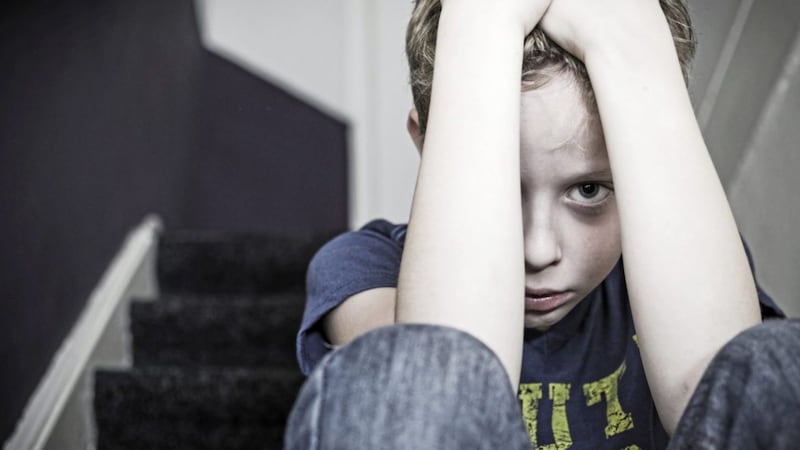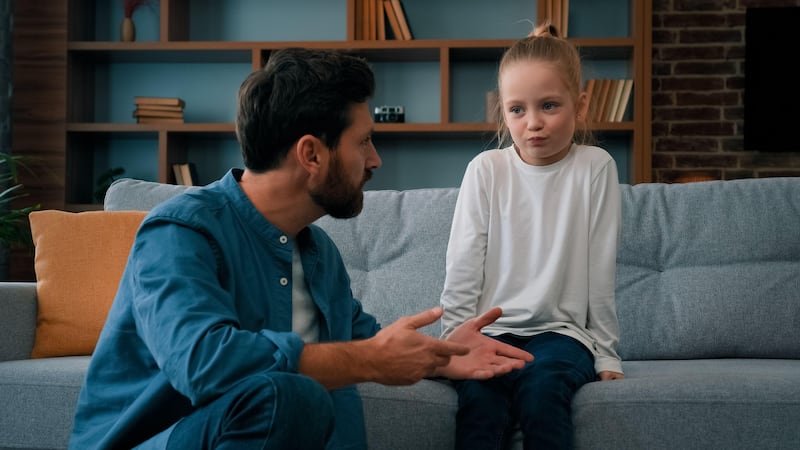WE ARE losing far too many of our children to suicide. In my part of the world, Derry, suicide is at almost epidemic levels. It seems that every week we are hearing of yet another family plunged into tragedy.
I have sat through meetings on health cuts, attended community meetings on the lack of mental health provision and heard young people stand up and tell people how they have suffered with mental health difficulties and feel that there is nowhere for them to turn to.
I have stood at the side of rivers alongside devastated parents as they search the waters for their teenage sons and listened as others spoke of their loss from the altars of churches after their children took their own lives.
With four children of my own, growing up in a city with such a high suicide rate, high unemployment and at times little hope, I worry greatly about their mental health and encourage them to talk to me about anything that is bothering them. I had thought that at 14 and 12 my older boys were a little young for me to be so concerned about mental health issues, but statistics from Childline, the free 24-hour counselling service for children and young people up to their 19th year provided by the NSPCC, have revealed that children as young as 10 years old are battling suicidal thoughts.
Childline say they carried out almost 387 suicide counselling sessions last year involving children from Northern Ireland. Across the UK, the NSPCC’s round-the-clock service delivered 22,456 counselling sessions with children, the youngest aged just 10, who were tormented by suicidal thoughts.
The NSPCC has warned that without appropriate support for young people, many are shouldering their troubles singlehandedly and turning to Childline only when they reach crisis point.
Suicide is the third most common reason for girls to contact Childline, and the fifth most common for boys. Mental health issues, family relationships, and self-harm were the top three additional concerns mentioned during suicide counselling sessions. Young people were most likely to be counselled about suicidal thoughts and feelings on Monday evenings, and the majority of children confided to counsellors online, via the charity’s 1-2-1 chat service, or by email.
Some young people who contacted Childline said they had previously asked for professional support and some asked counsellors to act on their behalf and help them get the help they needed more quickly.
These are terrifying statistics. If this was a flu virus or a visible illness that was killing our children in 2017 then I strongly believe there would be more done to tackle the issue. But with our health services facing even more devastating cuts and health workers stretched to the limit trying to keep what is there together, there doesn’t seem to be much chance of any more money being pumped into mental health services to ease the pressure.
Childline is a crucial service and I’ve no doubt they have saved countless young lives.
The NSPCC is now calling on members of the public to volunteer as Childline counsellors. By offering their time they could help a child and even potentially save a life.
Childline founder and president Esther Rantzen said: “The tragic statistics prove that Childline is more crucial than ever and, for some, literally a lifeline.
“When Childline launched over 30 years ago, I remember children usually felt suicidal because they were being hurt by someone. Now young people tell us they are overwhelmed by mental health issues taking them to the brink of suicide. We must discover why so many of our young people feel so isolated they turn to Childline because they believe no-one else cares about them.
“I would urge members of the public to consider becoming a Childline volunteer. Anyone who can lend a few hours to this vital service could end up saving a child’s life.”
Childline service manager for Northern Ireland, Mairead Monds, said: “We must face the painful reality that many young people feel so overwhelmed by their problems they have considered taking their own, precious lives.
“We have never seen figures like these before and they are a blunt wake-up call. Young people must know life is worth living and they can lead a life rich in possibilities and happiness. When they are suffering from problems it’s vital they get the right help swiftly before these issues snowball into suicidal feelings or even attempts to end their lives. I would urge any child who is feeling this way to take that first step and talk to Childline; our counsellors are always there for them.”
:: Childline is free, confidential and available any time, day or night. You can talk to counsellors on 0800 1111.








